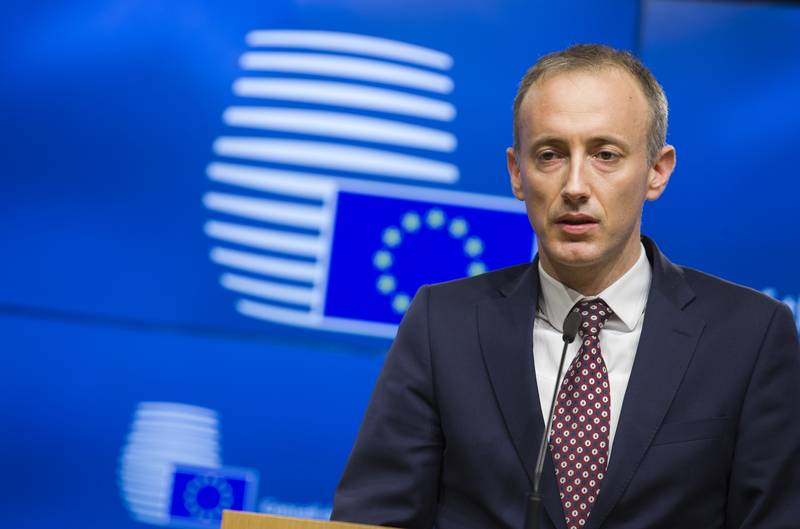The private sector in Britain is expected to take some of the sacked
Angel Shoilev Junior, January 13, 2011
 "Budget butchery" - this is how The Economist called the austerity measures of the British government. The purpose of the "butchery" is to reduce the huge public debt of the country, that has been piled up during the 13 years of Labour rule. In general, the cuts have been accepted with understanding by the society, although there are still doubts whether they were not introduced too hastily. The main fears stem from the fact that in the next 5 years, as long the term of the current Parliament would be, some half a million public employees will be sacked.
"Budget butchery" - this is how The Economist called the austerity measures of the British government. The purpose of the "butchery" is to reduce the huge public debt of the country, that has been piled up during the 13 years of Labour rule. In general, the cuts have been accepted with understanding by the society, although there are still doubts whether they were not introduced too hastily. The main fears stem from the fact that in the next 5 years, as long the term of the current Parliament would be, some half a million public employees will be sacked.
The government, however, has aimed to boost economic growth and private business which, on its part, has to commit itself into the common efforts by creating jobs. On January 10th the British PM, David Cameron, met with leading names from the private sector in order to discuss with them the perspectives of jobs creation. The idea of the meeting was to be seen what the government could do to stimulate private companies hire more.
Many companies, among which giants like Microsoft, John Lewis, McDonald's and all leading supermarket chains, committed to ensure new jobs, the BBC reported. After the summit at Downing Street 10, David Cameron said: "We can only get our economy back on track by creating a climate in which the private sector can grow and develop, creating jobs and opportunities for people across the country".
The supermarket chains Morrison's, Tesco, Sainsbury and Asda plan to open respectively 6 000, 9 000, 6 500 and 15 000 jobs in 2011. John Lewis and McDonald's promise to open 4 000 each and the gas company Centrica - 2 600, the BBC added. All this is equal to totally 47 000 new jobs. Just to compare, when he announced the plans for spending cuts for the next 4 years, the British Chancellor of the Exchequer, George Osborne, said that by the end of September 2010 178 000 new jobs had been created.
The conclusion is that the trick is in the balance: the joint efforts of the government and business are aimed to put the British finances in order, without this to reflect dramatically on employment.
As euinside reported, in Britain's current budget (the financial year on the island end on March 31st) 697bn pounds of spending were planned and the expected revenues amounted to 548bn pounds. This makes a budget deficit of 149bn pounds. Every public structure will have to cut its budget by almost a third, which is expected to lead to the loss of nearly 500 000 jobs. It is important to note that these half a million people would not remain without work at once, the cuts will be gradual. It is expected 3bn pounds to be saved from these measures.
In the meantime, however, the government is helping indirectly employment and economic growth in one more way - by not reducing investments in education and healthcare. For education the government has allocated 57.6bn pounds and for healthcare - 106.4bn pounds. Not only that these two sectors will not suffer from the spending cuts, but on the contrary - they will receive additionally 2bn pounds.
And this is normal - there is no reasonable man who could dare say that this is a wrong strategy. You want economic growth? Then healthcare, education and infrastructure must be a priority. You want production and competitiveness? You need educated people with good professional realisation. The message which the British government conveys can be expressed like this: We know that it will be tough for many of you, we know that it won't end fast but be patient for the sake of a recovered economy, good future and the security of next generations.
I don't know whether it is because I am young or it really is true but for the first time I see a state working together with the private sector for the sake of common good. The public sector cannot live without the private one and vice versa - realising this, the initiative they had undertaken together is worth boasting and could be given as a good example to many countries, including Bulgaria. And if we paraphrase a common remark of a famous politician - what the state can do for you is just as much as you can do for your state.
 Krasimir Valchev | © Council of the EU
Krasimir Valchev | © Council of the EU | © euinside
| © euinside | © EU
| © EU